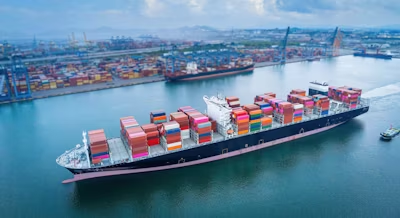The global business landscape is experiencing heightened uncertainty following the United States’ recent implementation of significant tariffs on imports from Canada, Mexico, and China. These measures, announced by President Donald Trump, have sparked concerns about potential trade wars and their implications for the global economy.
Details of the Tariffs
On February 1, 2025, President Trump signed executive orders imposing:
- Mexico – A 25% tariff on all goods, including energy exports.
- Canada – A 25% tariff on all goods, with a reduced 10% tariff on energy exports such as oil, natural gas, and electricity.
- China – An additional 10% tariff on top of existing tariffs, affecting a wide range of products.
These tariffs were initially set to take effect on February 4, 2025. However, following negotiations, a one-month delay was agreed upon to allow further discussions and potential resolutions.
Justifications and Responses
The Trump administration cited several reasons for these tariffs:
- Immigration and Border Security – Addressing the influx of illegal immigrants and the trafficking of illicit drugs, particularly fentanyl, across the U.S. borders with Mexico and Canada.
- Trade Deficits – Reducing the U.S. trade deficit by encouraging domestic manufacturing and decreasing reliance on foreign imports.
In response, both Canada and Mexico have expressed strong opposition:
- Canada – Prime Minister Justin Trudeau labeled the tariffs as unjustified and indicated plans for retaliatory measures, including potential tariffs on U.S. goods.
- Mexico – President Claudia Sheinbaum condemned the tariffs, stating intentions to implement both tariff and non-tariff retaliatory actions against the United States.
Market Reactions
The announcement of these tariffs has led to notable reactions in global markets:
- Stock Markets – Major indices experienced volatility, reflecting investor concerns over potential disruptions in international trade and economic growth.
- Currency Markets – The U.S. dollar exhibited fluctuations as markets reacted to the evolving trade policies and geopolitical tensions.
Economic Implications
Economists warn that these protectionist measures could have several consequences:
- Supply Chain Disruptions – Increased tariffs may lead to higher production costs and delays, particularly in industries heavily reliant on international supply chains.
- Consumer Prices – Consumers could face higher prices on goods subject to tariffs, potentially impacting purchasing power and overall economic sentiment.
- Global Economic Growth – Escalating trade tensions may hinder global economic growth, with ripple effects across various markets and industries.
Corporate Responses
Several multinational corporations are reassessing their strategies in light of these developments:
- Manufacturing – Companies with production facilities in affected countries are exploring options to mitigate tariff impacts, including relocating operations or adjusting supply chains.
- Retail – Retailers anticipate potential increases in product costs and are considering pricing strategies to balance profitability with consumer affordability.
Political Reactions
International leaders have expressed concerns over the tariffs:
- European Union – Officials are monitoring the situation closely, considering potential implications for global trade dynamics and exploring avenues to mitigate adverse effects.
- China – The government has criticized the additional tariffs, stating that they violate international trade agreements and harm both economies.
Conclusion
As the situation unfolds, businesses and investors worldwide are closely monitoring developments. The interplay between trade policies, market reactions, and geopolitical considerations underscores the complexity of the current global economic environment. Stakeholders are advised to stay informed and prepare for potential shifts in the business landscape.
For more in-depth analysis and updates on this developing story, stay tuned to our business section.


